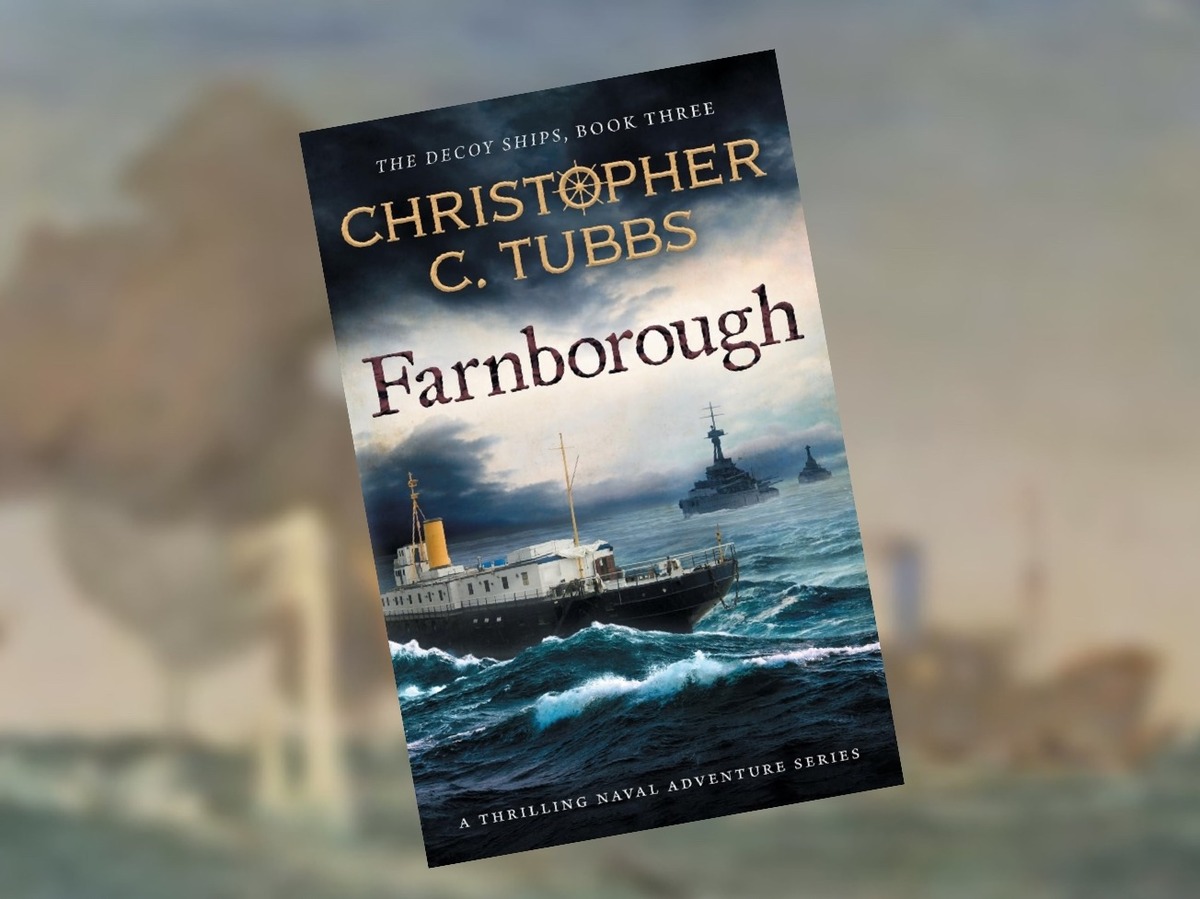This post contains affiliate links. If you click one, I may earn a commission at no cost to you. As an Amazon Associate, I earn from qualifying purchases.
History is full of stories of bravery at sea, but few are as daring—or as secretive—as the Royal Navy’s Q-ships during World War I. These armed decoy vessels disguised as harmless merchant ships turned the tables on unsuspecting German U-boats in one of the war’s most audacious naval strategies. In Farnborough, author Christopher C. Tubbs brings this little-known chapter of maritime history vividly to life in thrilling detail.

Tubbs, a seasoned writer of historical fiction, works comfortably in familiar waters. This isn’t his work about seafaring. As the book’s description notes, Farnborough is:
Perfect for fans of C.S. Forester, John Drake, Patrick O’Brian, Bernard Cornwell, and Griff Hosker.
Many thanks to NetGalley, Joffe Books, and Lume Books for providing an advance copy of this book to read and review.
Book Summary
It’s 1915, and Great Britain is at war. The Atlantic has become a hunting ground for German U-boats, which are sinking Allied ships with ruthless efficiency. In response, the Royal Navy turns to a desperate and ingenious strategy: Q-ships—ordinary-looking merchant vessels fitted with hidden deck guns to lure German submarines into a trap.
Farnborough takes readers aboard several of these ships, including HMS Taranaki and the infamous HMS Baralong. But at the heart of the story is HMS Farnborough, one of the most successful Q-ships of World War I. Commanded by the bold and daring Commander (later Captain) Gordon Campbell, Farnborough sails dangerous waters disguised as a simple tramp steamer. When a U-boat takes the bait, the real battle begins.

Interestingly, the British weren’t alone in using decoy ships. The Imperial German Navy also deployed their own, inspired by British success. The most famous was SMS Seeadler, captained by the swashbuckling Kapitänleutnant Felix Graf von Luckner, who earned a fearsome reputation while prowling Allied shipping lanes. Like their British counterparts, von Luckner and his crew displayed remarkable courage and cunning.
Farnborough is an engaging read that shows the tenacity, fearlessness, and ingenuity of Q-ship crews during the First Battle of the Atlantic in World War I.
My Thoughts
Farnborough is the latest installment in Christopher C. Tubbs’ The Decoy Ships series, following Kingfisher and Warley—which cover decoy ships in the 17th and 18th centuries respectively. While part of a series, Farnborough stands entirely on its own. But after reading this one, I’ll definitely be checking out the rest of the series.

This is historical fiction in the tradition of Horatio Hornblower, Aubrey-Maturin, and Richard Sharpe. Tubbs sticks close to historical events while crafting an engaging and suspenseful narrative. While Commander Campbell is the book’s central figure, Farnborough also follows several other Q-ship captains, chronicling their dangerous exploits in a series of gripping episodes. I found myself eagerly turning the pages to see what would happen next.

The story is told in an episodic format, with each section mostly standing apart from the others. Personally, I would have preferred the stories to be woven together a bit more tightly, but it hardly detracts from the experience. The book captures the spirit of the Q-ships by focusing on a select group of ships and their skippers.
There were a few minor historical inaccuracies in the advance copy I read—for example, referring to Northern Ireland before it officially existed in 1921, or calling RMS Lusitania an American ship—but for the most part, the narrative feels authentic and of its period.
Conclusion
Farnborough vividly portrays the high-stakes world of Q-ships and the brave crews who manned them, blending historical fact with fiction in a way that keeps readers hooked from start to finish. The thrilling adventures of Commander Campbell and his fellow captains showcase the clever strategies and sheer nerve needed to serve aboard a Q-ship.
Whether you’re a naval history buff or a fan of maritime fiction, this is a captivating read. I definitely recommend it!

Leave a Reply